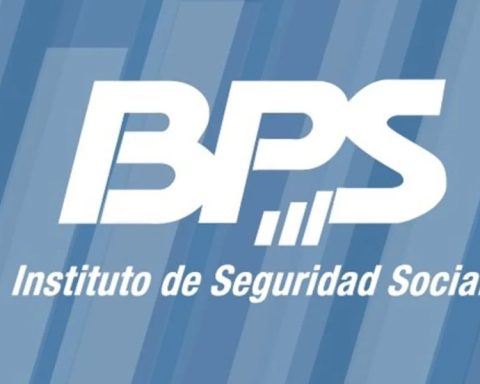The Central Bank of Uruguay (BCU), resolved this Tuesday keep the monetary policy interest rate (TPM) at 11.25%, seeking to anchor the inflation expectations of economic agents.
The decision
He April’s record placed annual inflation at 7.61%with a slight increase compared to March, mainly due to increases in fruit and vegetable prices, which was partially offset by the moderation in food and fuel prices.
The Monetary Policy Committee (Copom), assessed, however, that the iCore inflation remained stable (6.22%) at one of the lowest levels in the last five years, and close to the top of the target range.
In addition, he maintained that in April the average of the 24-month inflation expectations indicators (7.24%) also remained at a level similar to the previous period and “continues to be the focus of attention and analysis” of the Copom.
In this sense, it was valued “expectation stability” inflation, and even “some positive signs in its trend in certain measurements.”
However, The Copom affirmed that “the risk that the current levels of expectations materialize through the existing indexing mechanisms in the formation of prices and wages remains.”
The expectations
Currently, the inflation expected by the median of analysts in the 24-month horizon (relevant for monetary policy) stands at 6.85%, according to the BCU survey. This is something less than 1 percentage point above the ceiling of the target range (between 3% and 6%) and still far from the center of the range (4.5%).
For his part, the expectations of Uruguayan businessmen are the most unanchored and project inflation of 8% for the next 24 months, according to the survey carried out by the National Institute of Statistics (INE). Those expectations have remained unchanged since last December when they moved one point lower.
“The internalization of the inflation objective in the formation of prices and wages is expected, a key element for the convergence of inflation and inflation expectations to the target range,” says the official statement.
Arbeleche’s request
This topic was also mentioned by the Minister of Economy and Finance, Azucena Arbeleche, last week at the lunch of the Association of Marketing Managers (ADM).
“You will see, business ladies and gentlemen, that it is at 8%. The government would like these business expectations to be anchored at lower levels, because obviously at the end of the day these expectations have a huge impact on prices. And what is expected ends up being transmitted in the prices of the goods”, said the minister on the occasion.
Lower rates “will be slow”
Diego Battiste
On April 18, the Copom had lowered the interest rate by 25 basis points to 11.25%, after 12 consecutive increases, where the TPM went from 4.5% in July 2021 to 11.5% last December .
At the end of last month, the president of the BCU, Diego Labat, stated that monetary policy continues to be contractive.
“(The interest rate drop) will be as slow as we deem necessary, always taking care of the credibility of the inflation targeting regime and seeking the convergence of inflation and its expectations to the target range”affirmed the hierarch during a meeting with economic analysts and investors.
Global and regional situation
For the decision adopted, aspects of the international, regional and local situation were assessed.
According to the BCU, the global economic environment presents a heterogeneous scenario. He explains that, on the one hand, there are risks of slowing down the growth of economic activity and financial fragility.
And that, on the other hand, an inflation trajectory is observed that continues to evolve slowly downwards in the framework of commodity price stability and the reestablishment of global supply chains. In the region, The economy is expected to slow down in Brazil, while in Argentina the general economic environment remains delicate.
The Uruguayan economy
On the other hand, the Copom affirmed that In Uruguay, economic activity is expected to grow in the first quarter of the year, but not in the second quarter, which would be affected by the production supply shock as a result of the drought.
Based on the general panorama presented, The BCU Board of Directors decided to maintain the TPM at 11.25%. “This level is considered consistent with a contractionary monetary policy aimed at continuing the efforts for the convergence of inflation and its expectations in the 24-month horizon and the future movements of the TPM will be conditioned by the aforementioned variables”, says the official statement.
In the interbank market, banks lend each other money every business day at a daily rate (call). This rate —which the BCU sets as a policy reference— then ends up affecting the cost of money in the rest of the links of the domestic economy.
The next Copom meeting is scheduled for Tuesday, June 6.















